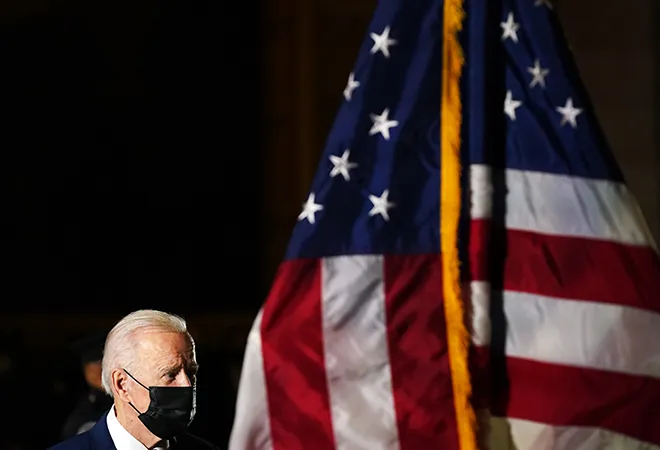
American President Joe Biden rescinded his predecessor’s controversial travel restrictions on 13 countries on his first day in office. Legal experts and human rights activists had described it as Trump’s “Muslim ban”.
“On day one, I’ll end Trump’s unconstitutional Muslim ban,” Biden had said during his election campaign. “My administration will look like America with Muslim Americans serving at every level.”
In 2017, in a series of executive orders, Donald Trump imposed a ban on the entry of immigrants from seven Muslim majority nations including Iran, Libya, Syria, and Yemen.
But the ban was seen as discriminatory as it singled out people on the basis of religion. It caused outrage and led to court cases. The first two versions of the ban were struck down and then Trump added Venezuela, North Korea, Nigeria, Myanmar, and several other countries just so it could be pushed it through the legal system.
Whilst American courts debated the ban, tens of thousands of families were forced to live apart. Many of these people had valid US visas to travel and yet their flights were cancelled and plans suspended. Hundreds of refugees could not get to the safety that they had been promised and political dissidents from the Middle East who had fled persecution in their countries were coerced to live in shantytowns or temporary tenements in countries like Lebanon and Turkey.
In 2018, America’s Supreme Court deemed it essential for America’s national security, to avoid terror attacks. Critics disagreed and questioned the narrative. Trump and his Islamophobic backers had given the rationale that had immigration authorities denied visas to 19 foreign nationals who crashed the airplanes into the twin towers and the Pentagon, the attack that killed 3,000 Americans could have been avoided.
But activists rubbished the claim. They said that Saudi Arabia, the country where most of these 19 men came from, was not on the list of banned countries. They concluded that the ban was meant to cash in on Islamophobia, even exacerbate it, rather than avoid future attacks on American soil.
Biden’s team held the view that prohibiting Muslims from entering America was “morally wrong” and that there was no evidence to suggest it made the US more secure.
As Biden repealed the ban many are asking if the US should apologise to the people who suffered unnecessarily because of Trump’s misguided and xenophobic policy. Others are demanding the US pass a No-Ban Act that prevents any future US president from imposing travel restrictions based on religion or ethnicity.
Trump has unleashed a “maximum pressure” campaign against Iran to weaken the Iranian government on behalf of its allies in the Gulf as well as Israel. But critics believe that the ban impacted many of those Iranians who harboured a soft spot for the US and advocated for western-style democracy in their country. According to a research project at Georgetown University, Iranians witnessed a decrease of 79% in visas between Oct 2015 and September 2019.
The exemptions inserted by the courts were rarely granted. Anyone who was undergoing “undue hardship” such as war; or those whose entry could be in America’s national interest, such as dissidents who subscribed to the same values as those propagated by the US; and those who did not present any threat to American security, such as parents of those already settled in the US, separated children and ill family members; could potentially exercise the waiver. According to Georgetown university’s research project, however, 74% of the applicants who sought the waiver between December 2017 and April 2020 were turned down.
While Biden has repealed the ban, America’s reputation as a torchbearer of human rights has taken a beating. Experts say Biden has won the elections but since a large part of the country also voted for Trump, the right-wing in the US is well and flourishing and might return to power with similar policies.
Meanwhile, if it is some consolation, in his first big speech on America’s foreign policy, President Joe Biden emphasised the US as a nation of immigrants and pledged to accept more refugees. He said he would increase the numbers to 125,000 a year while under Trump it had been just 15,000.
To start with, the Biden administration faces a huge backlog of those whose visas had been cleared before Trump came to power. Immigration experts said it could take years before all those manage to get in.
The views expressed above belong to the author(s). ORF research and analyses now available on Telegram! Click here to access our curated content — blogs, longforms and interviews.




 PREV
PREV


